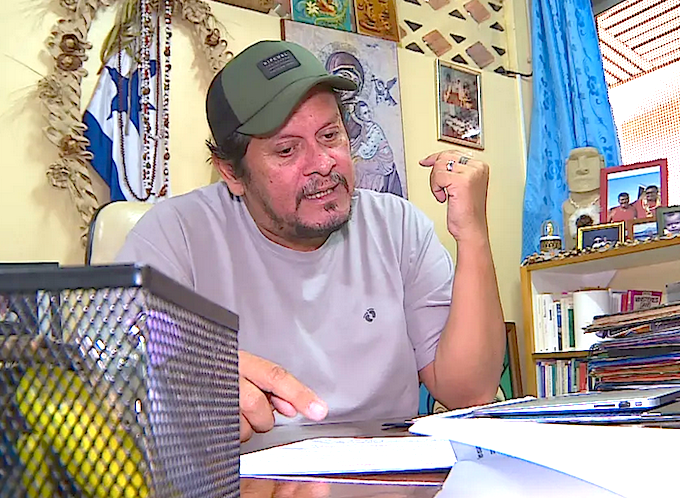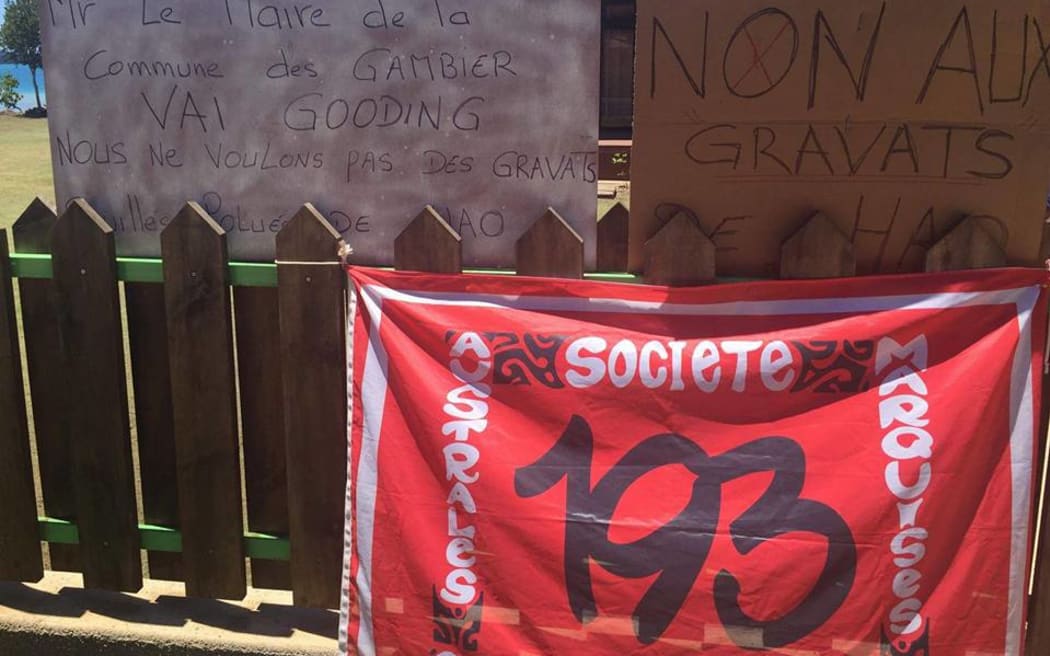
By Walter Zweifel, RNZ Pacific reporter
French Polynesia’s anti-nuclear organisation Association 193 has criticised the latest French report about the impact of the France’s nuclear weapons tests.
France’s National Institute of Health and Medical Research evaluated additional declassified data from the tests at Moruroa Atoll and found that radiation from them had a “minimal” role in causing thyroid cancer.
The association’s president, Father Auguste Uebe-Carlson, told the AFP news agency there was a tendency by the French state and the institute to minimise the impact of the nuclear fallout.
He said the French Committee for the Compensation of Victims of Nuclear Tests refused to recognise the files of victims born after 1974, when the military carried out its last atmospheric test.
But Father Uebe-Carlson said there was an argument to also recognise cancer sufferers born since then.
According to Father Uebe-Carlson, the institute would one day have to explain why there were so many cancers in French Polynesia.
He has repeatedly accused France of refusing to recognise the impact of the tests, instead using “propaganda” to say they were clean or a “thing of the past”.
He said health problems were now being attributed to poor diet and lifestyle choices.
He said that three years ago he had carried out a survey in Mangareva, which is close to the former weapons test sites, and found that from 1966 onward all families reported cases of still-born babies.
Call for release of scientific data
The president of the test veterans’ organisation Moruroa e Tatou said the release of the scientific data was not enough.
Hiro Tefaarere told Polynésie 1ère TV that it was “absolutely necessary” for his organisation to get from the French state the register of the cancer patients and cancer deaths during the testing period.
He said it was “imperative” that these files be given to Moruroa e Tatou.
Tefaarere said this research, if the state agreed to release it, would give his organisation the essential elements to consolidate the complaints which have been filed
A Territorial Assembly member, Hinamoeura Cross, who suffers from leukemia, said she was outraged that reports were still being published that were downplaying the tests’ effects.
The new Tahitian president, Moetai Brotherson, said he would take the latest report into account when he entered into discussions with the French government.
French Polynesia had for years been trying to get France to reimburse it for the costs of cancer sufferers.
$1bn to treat radiation cancers
Its social security agency, CPS, said that since 1995 it had spent almost US$1 billion to treat 10,000 people suffering from cancer as the result of radiation from the tests.
In 2010, Paris recognised for the first time that the tests had had an impact on the environment and health, paving the way for compensation.
Between 1966 and 1996, France carried out almost 200 tests in the South Pacific, involving more than 100,000 military and civilian personnel.
Paris has refused to apologise for the tests, but President Emmanuel Macron said France owed “a debt” to the French Polynesian people.
This article is republished under a community partnership agreement with RNZ.












































